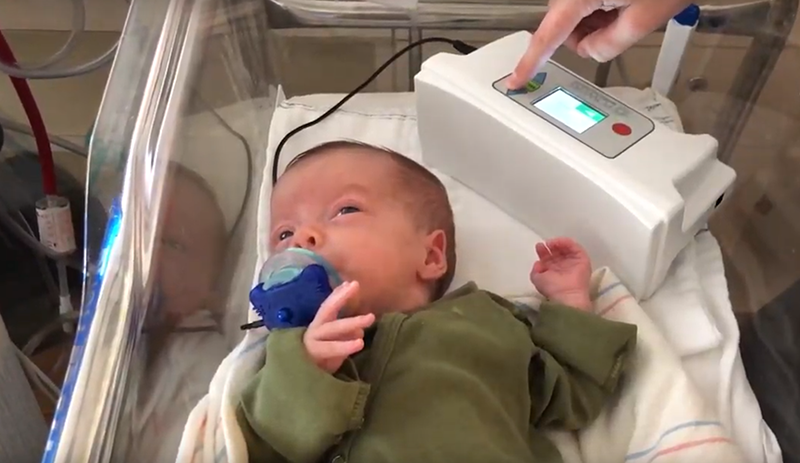Watching a premature newborn in intensive care is heartbreaking and at the same time a helpless experience for parents. Premature babies often have poor sucking reflex, rendering them difficult to feed. Researchers at UCLA Mattel Children’s Hospital created a novel device called Pacifier-Activated Lullaby (PAL) to help premature babies develop sucking skills.
Read more Raybaby – World’s only AI-Powered Non-Contact Health & sleep Monitor for Babies
PAL, which is now undergoing test at the UCLA Mattel Children’s Hospital, plays lullaby recorded by the babies’ parents. The device “is empowering parents by helping their babies and strengthening the parental-infant bond when mom and dad can’t be with their child,” reports UCLA Health.
“Babies born before 34 weeks gestation often struggle to feed orally because they have not yet developed the reflex to suck, breathe and swallow,” said Shelly Frisco, RN, a nurse in the NICU at UCLA Mattel Children’s Hospital. “With the PAL device, babies learn to feed faster and gain weight because they want to keep hearing their parents’ voices.”
Music therapists working in the neonatal intensive care unit help parents write and record a special lullaby. PAL can detect if the baby is sucking on the pacifier, so it plays a song when the baby sucks on it and stops when they stop sucking.
“Hearing their parents’ voices is an incentive to keep sucking,” said Jenna Bollard, expressive arts therapies manager at UCLA Mattel Children’s Hospital, who conducted the research.
Read more Masimo’s Rainbow Acoustic Monitoring RAS-45 Breathing Sensor for Babies Gets FDA Clearance
According to the researchers, 70% of babies who use PAL improve their proficiency using a pacifier, a skill that’s important to feeding. This also results in shorter hospital stays, which helps to remove the parents’ stress. “Giving parents a way to be part of their babies’ treatment helps them feel more bonded with their baby and gives them a very important role in their health and development,” said Bollard.













